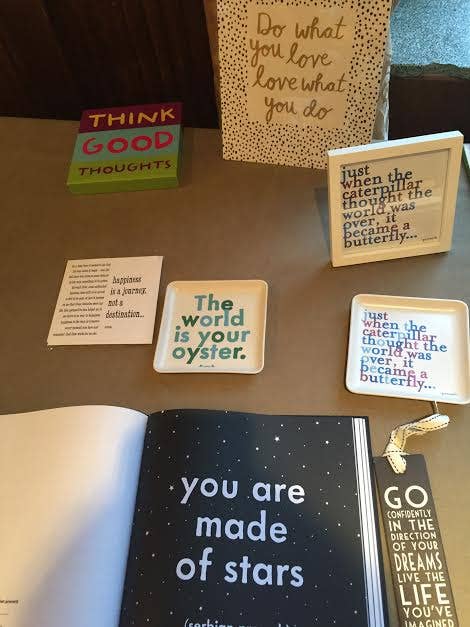I Attended A 'Retreat For The Heartbroken' To Get Over My Divorce
The retreat was a gift I gave to myself.
 Kiefer Pix/Shutter Stock
Kiefer Pix/Shutter Stock When my beloved husband ended our marriage, just seven months after our wedding date, so much of what I believed about my life and about the world shifted. After his revelation that he’d changed his mind about wanting to be married, I was shocked, confused and bereft, in pretty much equal measure.
I wished there was a magic wand that would take away the heartbreak — anything to get rid of the pool of grief that I was swimming in. But there was no magic wand, no pill I could take, no Eternal Sunshine of the Spotless Mind kind of memory erasing journey I could go on that would erase the pain of a love lost.
I knew that the only way through the anguish was to be fully in it, riding the rollercoaster of grief, seatbelt buckled, support system in place.
And so it was that on a blustery November morning, six months after my husband made the announcement that changed my life as I knew it, I arrived at a divorce/breakup recovery retreat for the heartbroken, willing to try anything that might push me further toward acceptance and healing.
The venue was a beautiful historic hotel in rolling English countryside. How ironic the romantic setting felt to me, and how strange the chocolates in the shape of hearts on my pillow — memories of a weekend getaway with my husband almost a year ago to the day of the retreat flooded my dreams as I slept on the plump goose-down pillows.
There we were — a dozen heartbroken people sitting around a table in a gorgeous oak paneled room. Our coach was Sara Davison, the UK’s leading divorce coach, who, having been through her own brutal divorce, knew intimately the struggles of, as she called it, "uncoupling." She was all about goal-setting and shifting your mindset, things I knew I needed to get serious about doing.
"When there’s a lack of things to look forward to, it’s time to design your dream life," she told us, smiling. This is the difference between a therapist and a coach, I learned: the coach is driven to move you to the next place more than they want to rehash what’s already happened, whereas often a therapist will rehash as much as you want to or feel you need to.
Though everyone in the group had their own unique story, there were some commonalities: sudden endings, infidelities, personality disorders and mental illnesses. I didn’t meet anyone whose spouse had left so soon after getting married; many of the others had children and years of marriage behind them. Still, I found comfort in the commonalities between us and in our shared desire to move forward.
“Stop telling your story,” Sara advised. “Use the energy for talking about your new life. Telling your story takes you back to feeling the emotions all over again. Tell it if you want to, as often as you want to, sure. But sometimes you just don’t want to, and that’s OK. Talk about great things — things you’re going to make happen in this next chapter of your life.”
So we did, which felt good.
When we did tell our stories, we were encouraged to detach from our ex by referring to him only by his first initial (instead of his name). A name holds emotional weight, has gravity and history, so detaching from it makes sense.

Photo: Author
There were a lot of tears and a lot of tissues. When we were asked to identify which stage of the grief cycle we were in, I said that I felt that I was making my way towards acceptance, but it was slow-going and I was still in the sadness stage. Before that, I’d been in shock, denial, and bargaining for a good few months.
Anger is a stage I seem to have completely bypassed, and I was reassured when Sara told me that often the anger stage is skipped because some of us don’t have the personalities to get really angry; we get sad instead. It helped to hear that grief isn't the same for everyone and that that we all move through the stages differently, spending longer in some and coming back again and again to others.
Of course, the stages of grief are not linear. I wish they were, then I could work my way through them and feel accomplished once I reached the end. But that’s not life; life is messier than that. I’m a doer, an efficient taskmaster who likes to check items off my list. But grief is complicated and is not something I can put on my to-do list. It refuses to comply with my wishes to be done with it already, and the tears keep coming.
When you reach the coveted acceptance stage, you’ve made it to the holy grail of grief stages, the place all the heartbroken wish they could be. But when you’re there, there’s a risk of getting stuck. As the wise Cheryl Strayed once said, “Acceptance is a small, quiet room.”
The challenge can be then to leave that room, to move past acceptance and to the beginning of a new chapter. Nobody ever really tells you that. What do you do with the acceptance once you have it? You move to something new instead of feeling that this is your lot in life. Tough, but necessary.
We were prompted to take healthy action steps even if we weren't feeling 100 percent ready because it's for the best and can help you move along, step by step. Social media is a powerful place to begin.
Sara’s advice? Get a friend to hold your hand or even press unfriend for you if you can’t do it yourself. It was suggested that we unfriend certain other people on Facebook: friends who were more his friends than ours, who aren't part of our support network or who we won't likely be seeing socially anymore.
RELATED: 5 Ways For Guys To Heal From Heartbreak During A Breakup
I really liked the new friends I’d made when I met my husband; they’d become a part of my life, and it felt hard to let them go. We were reminded that it’s always wise to take the higher ground and to be kind — to "always do the right thing." The right thing when you unfriend someone who meant something to you is to write them an email with an explanation about why you're unfriending them; it's too painful for you to see updates which remind you of the life you don't have anymore, for example.
After I returned home from the retreat, I finally sent those emails, and I finally hit that unfriend button. I received some empathetic responses back, thanking me for the personal email and explaining they were grateful that I let them know why instead of unfriending them without explanation. Their sweet emails were so lovely that they made me cry.
It hurt to press the unfriend button because it was another aspect of the life I had with him coming to a close. But I know that if I’m to move forward I have to cut ties, as hard as it is.
Since the retreat, I have a better understanding of the kinds of questions I can ask myself to help me move forward and learn how to get over heartbreak. In Sara’s words, “Those hamster wheel questions, they don't end anywhere good, so you have to ask yourself better questions." My personal hamster wheel questions are “Why is this happening to me?” and “Why is life so unfair?”
Every time I think these thoughts, I try to replace them with more helpful questions, like, “What do I have to do now, in order to live the life I want?” and “What am I grateful for?” This refocusing helps.
When I’m feeling anxious about the mostly blank page that is my future, I try a visualization technique I learned at the retreat. I create a movie in my mind of myself as my best self. I imagine what I’m doing, what I’m wearing, who I’m with and where I am. I close my eyes and I see myself in that place, and it makes me smile.

Photo: Author
This process of reinventing my life is slow, but it has to get done and I’m the only one who can do it; I understand this. Sara asked us how we would feel if we stayed in the stage we’re in and didn’t move forward — in five years, in ten years, in twenty. It was a horrifying thought.
The retreat was a gift I gave to myself, the chance to get away from all the normal stuff of life — work, family, friends — and to focus on me, only me, for two whole days. I left on Sunday feeling completely drained. I know that the pain I feel about my marriage ending will be with me for a long while yet, but I’m learning how to live with the sad feelings.
And there was something invigorating about the retreat, too. I carried away an armful of strategies to help me to navigate this new path. As a parting gift, Sara gave us each a mug, on which is written "Just when the caterpillar thought the world was over, it became a butterfly." I’ll drink to that.
Amy Schreibman Walter is an American writer and teacher living in London. Her articles have appeared in Huffington Post and Parent Co, among others.

